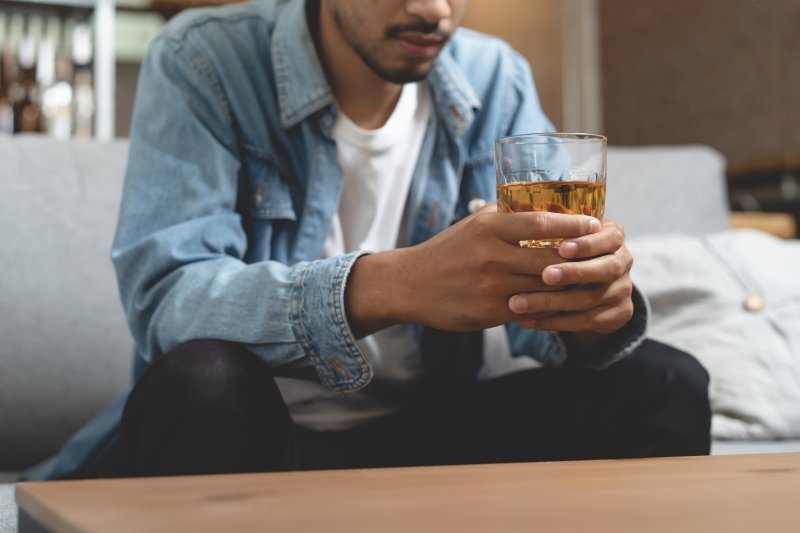
Some people claim that having a drink or two before bed helps them fall asleep easier. However, that’s not necessarily true. In fact, a nightcap could be affecting your quality of shuteye more than you think. If you suffer from sleep apnea, drinking alcohol can increase your risk of apneic events and induce snoring by relaxing the muscles of the airway. With that in mind, read on to learn why people with this sleep disorder should avoid having a drink before bed.
How Does Alcohol Affect Sleep Apnea?
Ongoing studies have revealed that moderate or heavy drinking can lead to episodes of obstructive sleep apnea even in people who aren’t diagnosed with the condition. Since drinking alcohol can increase the time between when you stop breathing and when you “wake up” to breathe again, it can make your OSA worse. The increase in the severity of your apneic symptoms can lead to severe drops in your blood’s oxygen levels.
Alcohol can also slow your breathing and relax the muscles of your throat, making it more likely for your upper airway to collapse. That can contribute to snoring (the vibration of soft tissues) and complete obstruction that occurs in sleep apnea.
Should You Avoid Drinking Alcohol?
It’s strongly recommended that patients with sleep apnea abstain from all alcohol use. However, it’s not easy for people to cut out alcohol completely, especially if they’re used to drinking it occasionally. The best thing you can do is avoid consuming alcohol in the hours before bed to minimize its effects. Additionally, you need to make sure you’re using your treatment for sleep apnea every night.
Tips for Better Sleep
Can’t ditch the glass of wine you have every night for dinner? Here are some tips to keep your alcoholic drink from affecting your quality of sleep:
- Follow the three-hour rule. Try and finish your drink at least three hours before bedtime to minimize its effects.
- Don’t drink too much. Make sure you stick to one or two drinks per day!
- Sleep early. Staying up past your bedtime can increase the alcohol’s sleep-depriving effects, so it’s best to try and fall asleep at your usual time.
- Drink plenty of water. You should try and follow the one-for-one rule where you drink a glass of water for every glass of alcohol to avoid dehydration. Don’t forget to drink plenty of water the following morning as well!
Before you pour yourself a drink at night, take a moment to think about the effects alcohol can have on your sleep apnea. Although it’s best to avoid a nightcap entirely, following the tips outlined above will keep your drink from hampering your shuteye.
About the Practice
At Nelson Dental Sleep Medicine, we provide FDA-approved alternatives to CPAP so patients can enjoy quality sleep once again. Our team will do everything possible to provide you with relief from the symptoms of obstructive sleep apnea. To learn more about the effects of alcohol on your sleep, visit our website or call (813) 733-4169.
